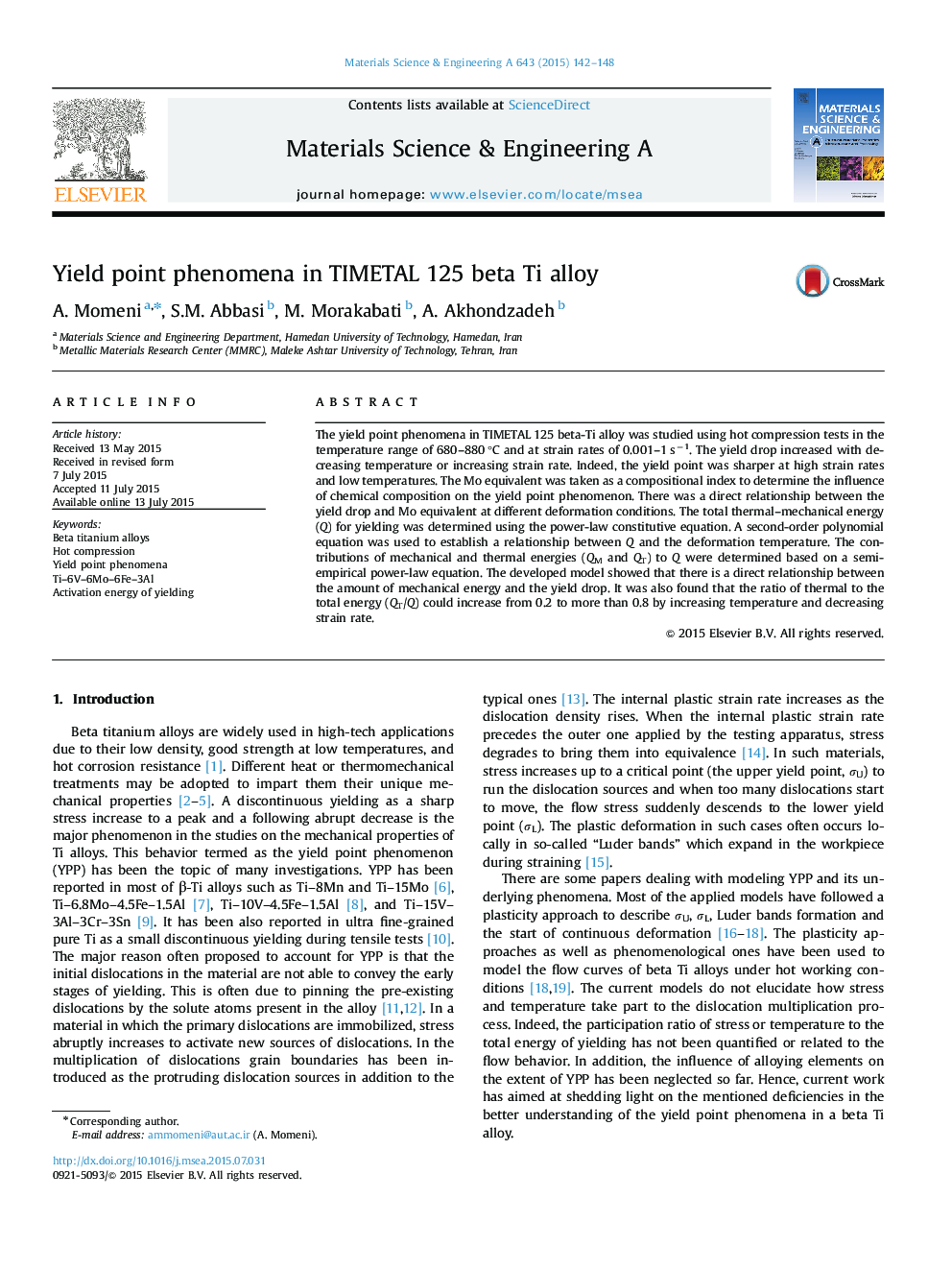| Article ID | Journal | Published Year | Pages | File Type |
|---|---|---|---|---|
| 1574129 | Materials Science and Engineering: A | 2015 | 7 Pages |
Abstract
The yield point phenomena in TIMETAL 125 beta-Ti alloy was studied using hot compression tests in the temperature range of 680-880 °C and at strain rates of 0.001-1 sâ1. The yield drop increased with decreasing temperature or increasing strain rate. Indeed, the yield point was sharper at high strain rates and low temperatures. The Mo equivalent was taken as a compositional index to determine the influence of chemical composition on the yield point phenomenon. There was a direct relationship between the yield drop and Mo equivalent at different deformation conditions. The total thermal-mechanical energy (Q) for yielding was determined using the power-law constitutive equation. A second-order polynomial equation was used to establish a relationship between Q and the deformation temperature. The contributions of mechanical and thermal energies (QM and QT) to Q were determined based on a semi-empirical power-law equation. The developed model showed that there is a direct relationship between the amount of mechanical energy and the yield drop. It was also found that the ratio of thermal to the total energy (QT/Q) could increase from 0.2 to more than 0.8 by increasing temperature and decreasing strain rate.
Keywords
Related Topics
Physical Sciences and Engineering
Materials Science
Materials Science (General)
Authors
A. Momeni, S.M. Abbasi, M. Morakabati, A. Akhondzadeh,
